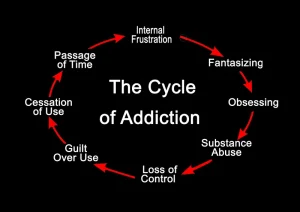Is Alcoholism Genetic? Understanding the Genetics of Alcoholism 23andMe Blog

While there are environmental and social factors that influence the risk for alcoholism, there is also a genetic component. If there’s a history of alcoholism in the family, you have a higher risk of developing AUD. However, knowing your family history of addiction shouldn’t make you feel hopeless, as if you’re bound to the same fate. At Oar Health, we talk a lot about reward pathways, which the central nervous system governs by controlling dopamine release, a feel-good chemical.
- By identifying individuals at high genetic risk and providing targeted prevention and intervention programs, it may be possible to reduce the risk of alcohol addiction and related health problems.
- Within psychiatry, the exploration of the alcoholic gene has intensified, aiming to understand its influence on a person’s risk of alcoholism.
- The incidence of alcoholism was slightly higher among people who were exposed to alcoholism only through their adoptive families.
Trajectories of genetic risk across dimensions of alcohol use behaviors
Intriguingly, in the United States, factors like family wealth play a Oxford House pivotal role in substance use disorders. These insights suggest that those with a genetic predisposition to alcoholism could benefit from early interventions and tailored treatments. A hereditary condition is often used interchangeably with an inherited or genetic one, though it typically emphasizes the familial transmission of traits or conditions.
Be Aware of the Early Signs of Alcohol Addiction

Studies arerevealing other genes in which variants impact risk for alcoholism or relatedtraits, including GABRA2, CHRM2,KCNJ6, and is alcoholism genetic AUTS2. As larger samples areassembled and more variants analyzed, a much fuller picture of the many genesand pathways that impact risk will be discovered. Individuals with a genetic predisposition to alcoholism face a higher risk of developing addiction due to their unique genetic makeup.

Table 1. Criteria for alcohol use disorders.
Juvenile delinquency, kids ending up in in juvie because they've made impulsive choices and gotten in trouble with the law. And it would be nice to know specifically what we need to have a heads up about and how we need to support each person individually with ADHD. Our addiction treatment facilities located in Scottsdale, Arizona are dedicated to providing comprehensive treatment and supporting people in their journey to sobriety. Connect with our addiction specialists today and begin your recovery in a comfortable and luxury setting. Our mental health clinics are located in the Loop, River North, Lakeview (Broadway and Belmont) for those in Chicago. If you are located in a suburb such as Oakbrook, Northbrook, Schaumburg, Evanston, Winnetka, or Naperville, IL, head to our Evanston or Arlington Heights clinic.
Find Mental Health Care
- At Oar Health, we talk a lot about reward pathways, which the central nervous system governs by controlling dopamine release, a feel-good chemical.
- “In fact, using this questionnaire in a population not ascertained for alcohol use disorders we have been able to achieve the largest sample size even obtained in the field of alcohol use disorders,” said Sanchez Roige.
- However, it is important to note that genetics alone do not determine whether an individual will become an alcoholic.
- While the exact mechanisms of inheritance are not fully understood, research suggests that several genes are involved in the risk of developing alcoholism.
- The second gene that can influence the likelihood of AUD is how the body metabolizes it; specific genes control how the body metabolizes alcohol.
The concept of genetic predisposition to alcoholism refers to the idea that certain genetic variations can increase an individual’s susceptibility to developing alcohol addiction. These genetic variations, or alleles, can be inherited from one or both parents and are present in an individual’s genome. While there is overlap between alcohol use disorder and alcohol consumption, the researchers did further analysis and found a “distinct genetic architecture” differentiating alcohol abuse from alcohol consumption. And these distinctions will be important for identifying the genetics of addiction, the researchers said. Again, while genetic inheritance plays a strong role in AUD’s development, it is not always a determining factor.


While genes play a role in a person’s predisposition to alcoholism, the environment in which they live also plays a significant role. Gene-environment interactions are important in understanding the development of alcoholism and designing effective prevention and treatment approaches. It is important to note that having these genetic risk factors does not guarantee that an individual will develop alcohol dependence. Environmental factors, such as exposure to alcohol at an early age and social influences, also play a significant role in the development of the disease. Understanding the interaction between genes and the environment is key to unraveling the complexities of alcoholism and developing effective prevention and treatment strategies. Although the serotonin transporter gene is not the sole determinant of alcoholism, it does contribute to an individual’s genetic predisposition to the disease.
Alcohol is widely consumed, but excessive use creates serious physical,psychological and social problems and contributes to many diseases. Alcoholism(alcohol dependence, alcohol use disorders) is a maladaptive pattern ofexcessive drinking leading to serious problems. Abundant evidence indicates thatalcoholism is a complex genetic disease, with variations in a large number ofgenes affecting risk. Some of these genes have been identified, including twogenes of alcohol metabolism, ADH1B and ALDH2,that have the strongest known affects on risk for alcoholism.
Study design and patients

In most cases, studiesrecruited families having multiple members with alcohol dependence; such familiesare likely to segregate variants that affect the risk of alcohol dependence. Themost common initial approach was linkage analysis, in which markers throughout thegenome were measured to identify chromosomal regions that appeared to segregate withdisease across many families. The drawback to this approach isthat linkage studies find broad regions of the genome, often containing manyhundreds of genes.

